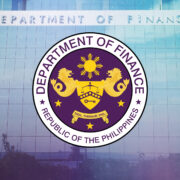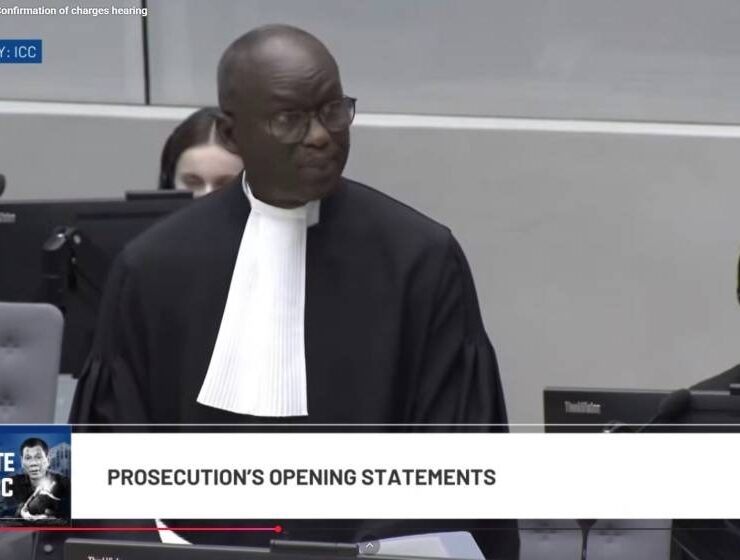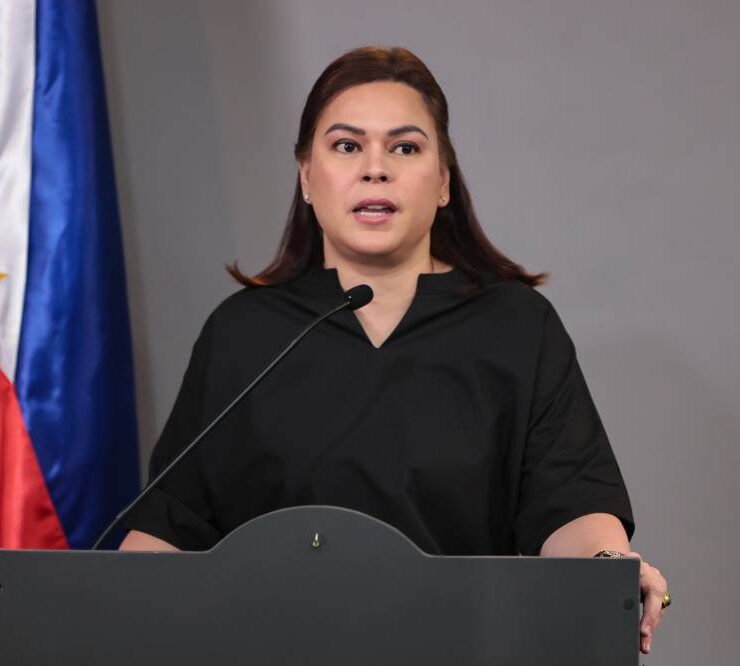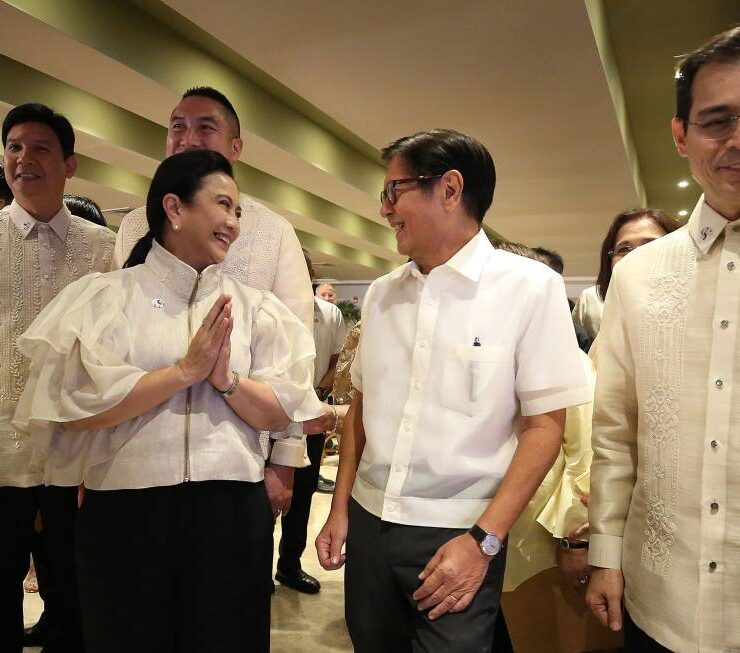PH exits int’l dirty money ‘gray list’
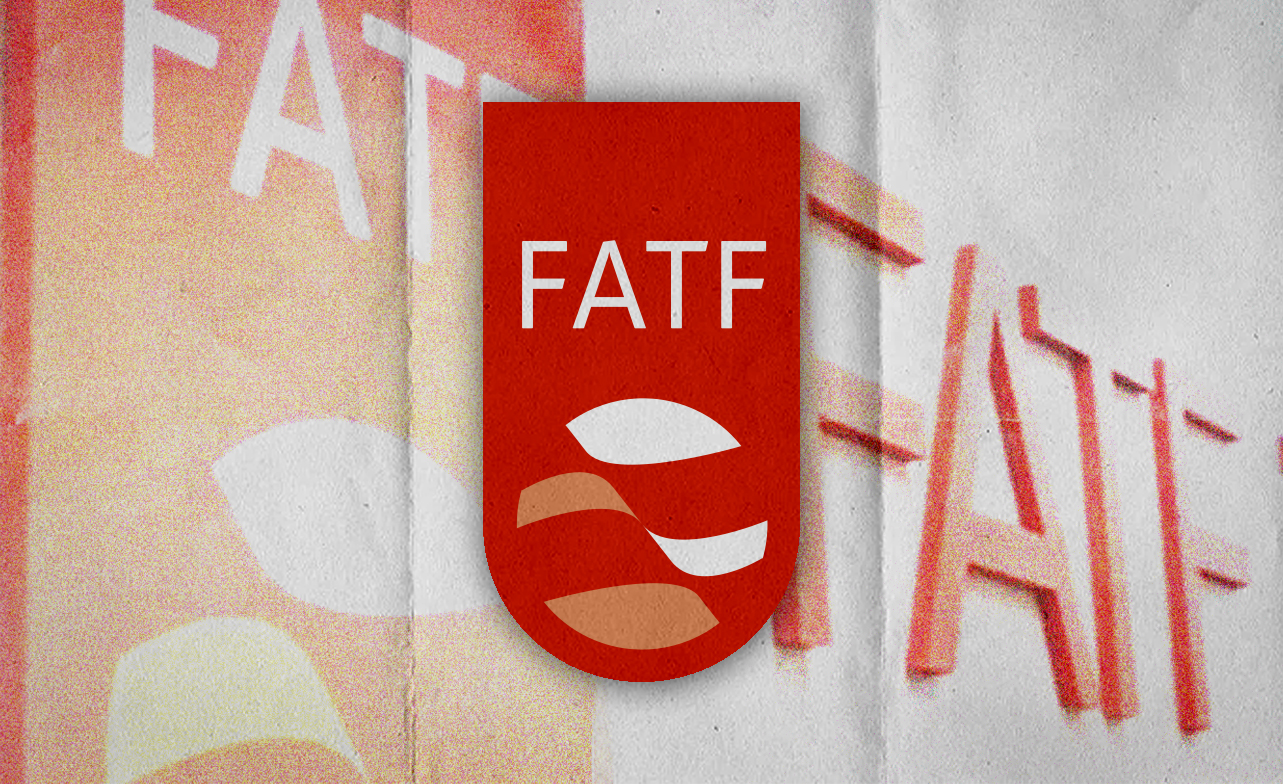
The Philippines is set to enjoy lower foreign remittance costs for its millions of workers overseas and better investor perception following its removal from the global dirty money “gray list,” which had put the country’s system against money laundering and terrorism financing under heightened scrutiny for over three years.
At the end of its February meeting, Paris-based Financial Action Task Force (FATF), the global money laundering and terrorist financing watchdog, on Friday removed the Philippines from its list of jurisdictions under increased monitoring—the only country to be excluded in the latest round of assessment.
The decision wrapped up more than three years of the Philippines’ efforts to remedy all 18 deficiencies in the measures against antimoney laundering (AML) and counterterrorism financing (CTF).
Those deficiencies dragged the Philippines back to the gray list in June 2021 and pushed it to the brink of being “blacklisted” as it was in 2002—which would have resulted in failed cross-border transactions, delays and higher costs of remittances, which is a major lifeline for many Filipinos.
Being on the gray can create reputational risk and discourage correspondent banking relationships and international financial flows into the country. Fears of joining North Korea and Iran in the blacklist had intensified when the Philippines missed the January 2023 deadline of the FATF to fix all 18 gaps in its AML/CTF measures.
Gains must be sustained
At a press conference on Friday night (Manila time), FATF president Elisa de Anda Madrazo said the Philippines would still have to show that it could sustain the implementation of its AML/CTF reforms in a way that was “consistent” with the FATF standard.
“The country will continue to work with the Asia-Pacific Group on money laundering and will start preparing soon for their next evaluation,” De Anda Madrazo said.
The FATF was established in 1989 by the G7 to combat money laundering. It now has 39 members, including the G7 nations, the European Commission and eight other countries that comprised it originally.
In 2001, the FATF expanded its mandate to also combat terrorist financing and the financing of weapons of mass destruction.
The Anti-Money Laundering Council (AMLC) said the country’s exit from the gray list would help it attract more job-generating foreign capital, as the AML/CTF reforms could inspire investor confidence in the local financial system.
Fintech players to benefit
Even prior to the country’s gray-listing, some foreign regulators were already imposing stringent requirements or fines on financial companies dealing with entities in the Philippines. This had prompted some offshore banks to avoid doing business with local financial companies rather than managing possible money laundering or terrorist financing risks.
“The FATF decision may prompt foreign banks to review and resume their business relationship and transactions with Philippine financial entities,” the AMLC said.
The Fintech Alliance PH, an industry group, said the delisting would benefit fintech companies—those that offer digital financial services like GCash and Maya—other businesses and consumers.
The AMLC said the clear winners of the delisting were overseas Filipino workers (OFWs), whose remittances are a major source of purchasing power in the Philippines.
Tighter casino regulation
It expected faster and lower-cost cross-border transactions, reduced compliance barriers and enhanced financial transparency.
It was widely believed that the Philippines’ link to the 2016 cyberheist—where $81 million in funds stolen from the Bangladesh central bank was laundered in casinos here—had triggered the country’s return to the gray list.
De Anda Madrazo said that the tighter regulation of casinos in the country helped close a major gap in the country’s AML/CTF systems.
The FATF chief said the closure of Philippine offshore gaming operators (Pogos), which had been linked to money laundering and human trafficking, beefed up the country’s defense against illicit flow of funds.
“Amongst other efforts and results, the Philippines is now actively combating the risk of dirty money flowing through casinos in the country. Offshore gaming operators have been closed and casino junkets are now closely scrutinized,” she said.
In a statement, Alejandro Tengco, president and CEO of Philippine Amusement and Gaming Corp. (Pagcor), vowed to “continuously strengthen regulations and strict monitoring of the local gaming industry.”
“Pagcor will continue to ensure that all our licensees are compliant with all antimoney laundering rules and regulations,” Tengco said.
Victory for economy
Malacañang on Saturday said the delisting was a “well-earned, hard-fought” win by the country against money laundering and counterterrorism financing.
In a statement, Executive Secretary Lucas Bersamin said the country’s exit from the gray list resulted from President Marcos’ efforts to “finally dismantle structures that could be exploited by money launderers and terrorism financiers.”
It would boost the drive to attract “job-creating, growth-inducing foreign direct investments,” he said, lamenting that this had long been undermined by the country’s reputation as a “dirty money haven.”
Speaker Martin Romualdez said the FATF decision was a “landmark achievement” for the Marcos administration, calling it a “monumental victory for our economy and a resounding testament to our collective resolve to uphold the highest standards of financial governance.”
He said the President’s Executive Order No. 33 in 2023 set the roadmap for fulfilling the FATF’s action plan.
Also due to Pogo ban
Romualdez also credited members of the House of Representatives for passing reforms that strengthened the country’s antimoney laundering and counterterrorism financing framework after working closely with the Executive Branch, the Bangko Sentral ng Pilipinas, AMLC and other key institutions.
Sen. Sherwin Gatchalian said the move by the FATF validated the President’s decision to shut down Pogos, which Mr. Marcos announced during his State of the Nation Address last year.
“The removal of the Philippines from the gray list less than two months after the ban on Pogos took effect is yet another proof that the country is in a much better position economically without Pogos,” he said.
SEC reforms
Emilio Aquino, chair of the Securities and Exchange Commission (SEC), said the commission helped in the delisting by stepping up and positioning itself “at the forefront of our fight against money laundering and terrorist financing” and implementing reforms to prevent the “misuse of the corporate vehicle in illicit activities.”
He said that among the reforms initiated by the SEC was mandating the disclosure of a company’s beneficial owners to determine the people or entities that control it and prohibiting the issuance of bearer shares to enhance corporate transparency.
“With our exit from the FATF gray list, we are optimistic that the international community will see the Philippines as an even more attractive destination for business and investment,” Aquino said. —WITH REPORTS FROM JULIE M. AURELIO, MARLON RAMOS, KRIXIA SUBINGSUIBING AND MEG ADONIS











